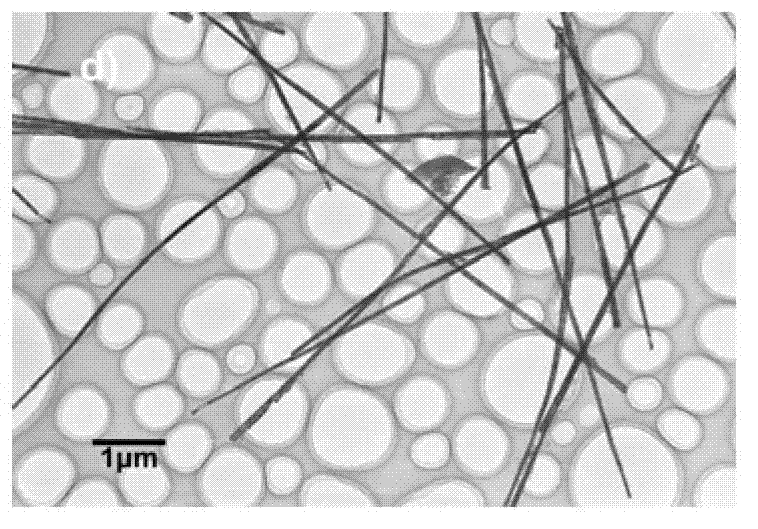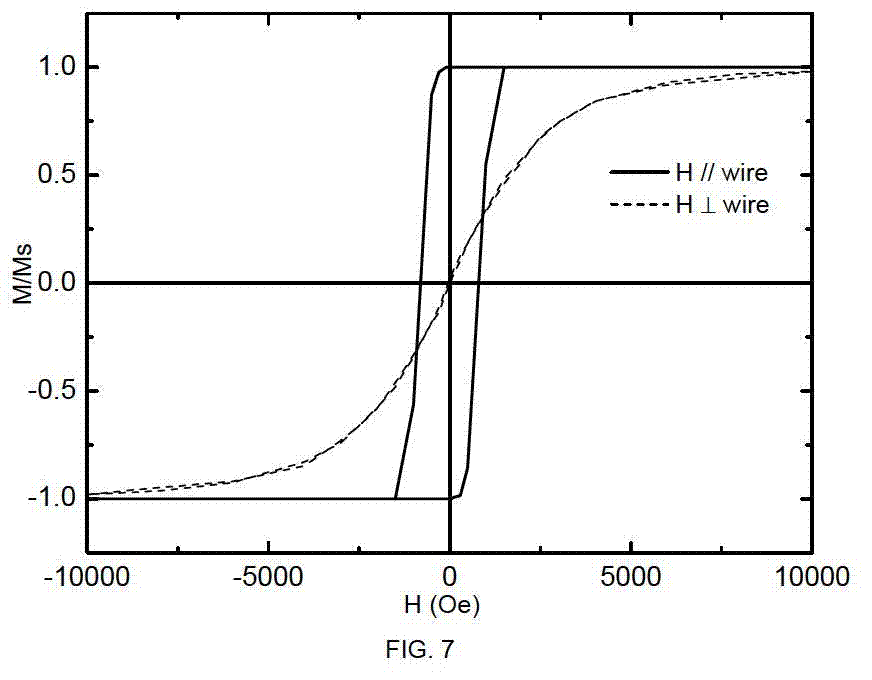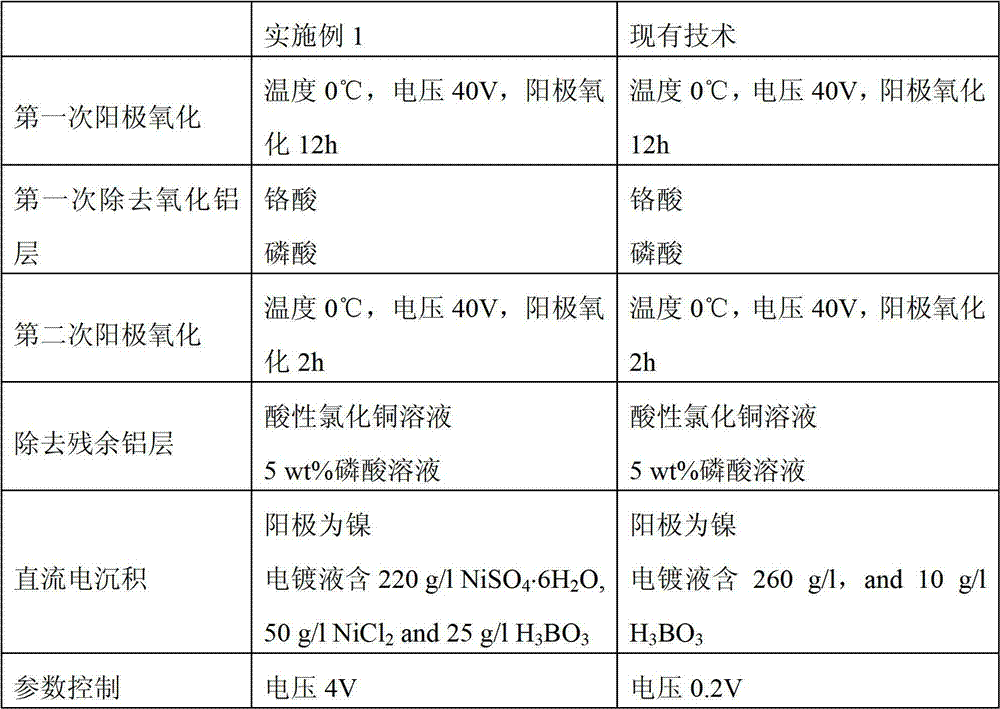Preparation method of one-dimensional magnetic nanowire array with ultrahigh axial remanence ratio
A technology of magnetic nanometer and remanence ratio, which is applied in the direction of nanotechnology, chemical instruments and methods, single crystal growth, etc., can solve the problems of low magnetic parameters and cannot meet the needs of practical applications, and achieve the effect of good universality
- Summary
- Abstract
- Description
- Claims
- Application Information
AI Technical Summary
Problems solved by technology
Method used
Image
Examples
Embodiment 1
[0054] Example 1 Taking the alumina template as an example, the preparation process of the alumina template includes the following steps:
[0055] a1. The first anodic oxidation: the aluminum sheet after degreasing and polishing is used as the anode, copper is used as the cathode, the electrolyte is phosphoric acid, the temperature is kept at 0°C, the voltage between the electrodes is 40V, anodized for 12 hours, and formed on the surface of the aluminum sheet Aluminum oxide layer.
[0056] a2. Removing the alumina layer for the first time: use a mixed solution of 15wt% chromic acid and 10wt% phosphoric acid at a volume ratio of 1:5 to remove the formed alumina layer and wash it.
[0057] a3, the second anodic oxidation: the aluminum sheet after removing the aluminum oxide layer in step a2 is used as the anode, and the copper is used as the cathode for the second anodic oxidation. The electrolyte is sulfuric acid, the temperature is maintained at 0°C, and the voltage between th...
PUM
| Property | Measurement | Unit |
|---|---|---|
| length | aaaaa | aaaaa |
Abstract
Description
Claims
Application Information
 Login to View More
Login to View More - R&D
- Intellectual Property
- Life Sciences
- Materials
- Tech Scout
- Unparalleled Data Quality
- Higher Quality Content
- 60% Fewer Hallucinations
Browse by: Latest US Patents, China's latest patents, Technical Efficacy Thesaurus, Application Domain, Technology Topic, Popular Technical Reports.
© 2025 PatSnap. All rights reserved.Legal|Privacy policy|Modern Slavery Act Transparency Statement|Sitemap|About US| Contact US: help@patsnap.com



